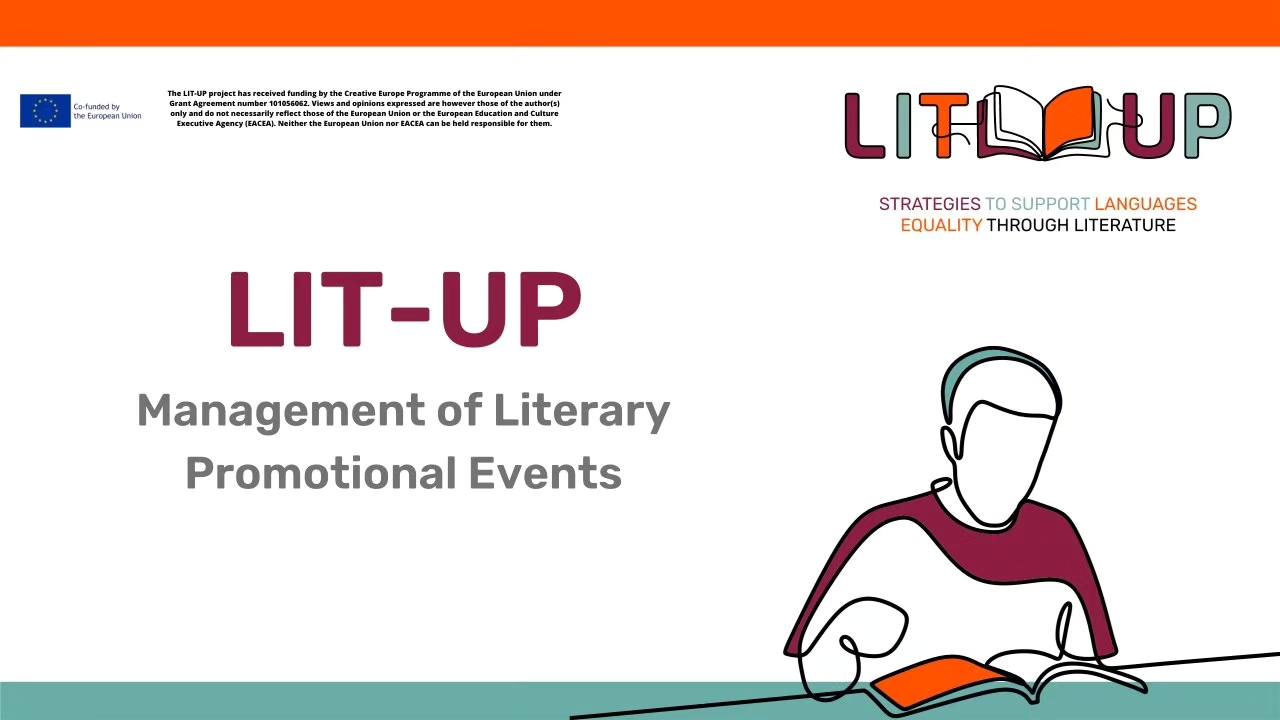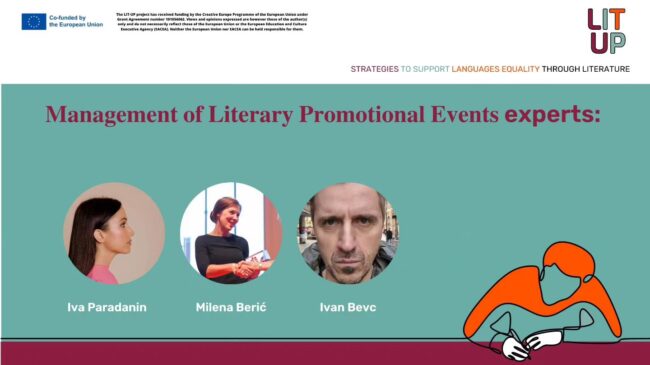
03 Nov LIT-UP online training on Management of Literary Promotional Events
The second training within the LIT-UP project is now accessible via Moodle.
This module will focus on crucial skills for authors and publishers, covering topics such as event preparation, tasks during an event, and leveraging the collective presence of authors and editors/publishers at promotional events.
In November, we are keen to have industry professionals conducting Zoom sessions to delve into various topics.
- Ivan Bevc, November, 16th: He founded “Booka” publishing house in 2010 and, since then, published more than 150 books of the best contemporary authors.
- Milena Berić November, 23rd: Communication specialist, she is a communications and External Affais expert and she received the European Communication Award for Literary Festival Krokodil 2015.
- Iva Parađanin, November, 30th: Serbian journalist whose work mostly focuses on women’s rights and who runs a podcast called Tampon Zona.

- The second module starts on the 1st of November.
- You can register by clicking here. After your registration, we’ll contact you with more details about starting date and available materials
- It’s perfect to publishers, authors, booksellers, librarians and students
What Is LIT-UP?
LIT-UP is a Creative Europe project aiming at defining and implementing competitive strategies to empower publishers and authors working with less used languages in front of big players in a global context. Strategies defined will try to help them, via activities and trainings, to compete with real opportunities of survival against big languages and players working in their own markets.


